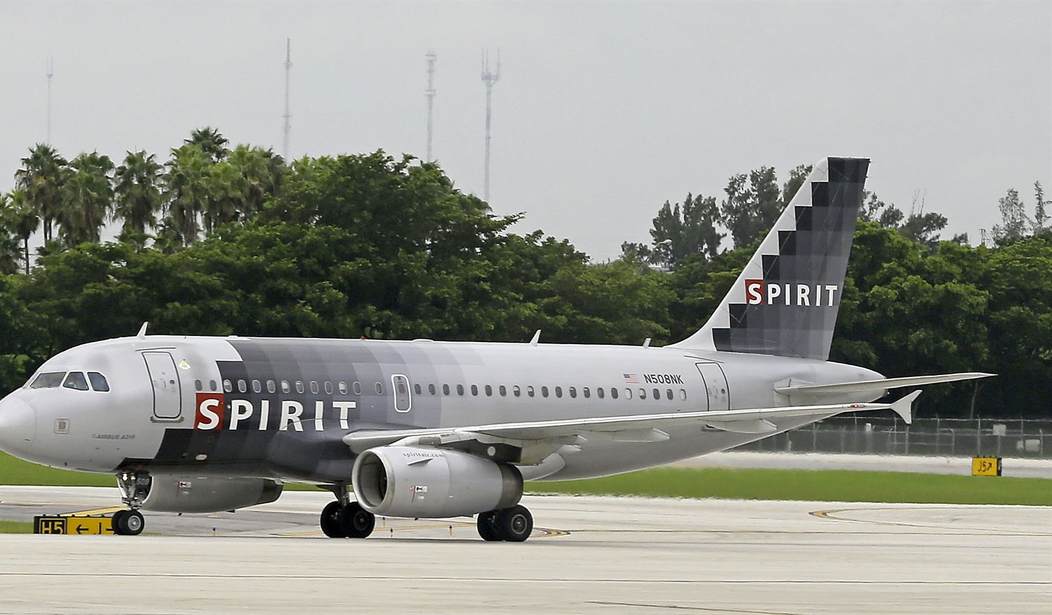As the economy sputters, invaders desolate Ukraine, and the ink on a debt ceiling deal dries, President Biden has designated another target worthy of his presidential focus: the inconveniences of airline cancellations. Biden quipped, “Later this year, my administration will propose a historic new rule that will make it mandatory, not voluntary — but mandatory for all U.S. airlines to compensate you with meals, hotels, taxis, ride shares, or [rebooking] fees, and cash, miles, and/or travel vouchers whenever they are the ones to blame for the cancellation or delay.”
Cancellations, delays, and other air-travel shenanigans are unquestionably maddening. Invasive, nanny-statist regulatory regimes will, however, financially burden airlines and consequently increase the price of airfare. Such tradeoffs persist despite consumers’ frustrations and elected officials’ gambits to capitalize. However, attempting to wish away the basic principles of economics does no good.
Moreover, Biden’s airline crusade oversteps congressional efforts to the same end. In January, Sens. Richard Blumenthal (D-Conn.) and Ed Markey (D-Mass.), among others, sponsored the so-called “Airline Passengers’ Bill of Rights.” The legislation largely includes Biden’s proposals. It would further establish a $1,350 compensation threshold for passengers involuntarily denied boarding. It would also direct the Federal Aviation Administration (FAA) to enforce minimum seat dimensions for aircraft, require airlines to provide to passengers free drinking water, and more. Sen. Maria Cantwell (D-Wash.), chair of the Senate Commerce Committee, has pledged support for policies of this sort as Congress negotiates a renewal of the FAA’s authorization this year.
Sen. Markey noted that, “Air travelers shouldn’t have to foot the bill for basics like a carry-on bag, a seat next to their children, or even for a sip of water, especially as airlines continue to fail passengers at every turn.” While a valid aspirational sentiment, the statement makes little economic sense. Passengers will unavoidably cover these costs. If water bottles cost nothing in flight, airlines will instead include that cost in ticket prices or elsewhere.
Recommended
Ultra-low-cost carriers such as Spirit Airlines cheapen tickets by charging separately for in-flight amenities as well as checked and carry-on luggage. Thus, customers may purchase cheap, stripped-down tickets and pay only for those add-ons they value personally.
Baruch Feigenbaum (senior managing director of transportation at the Reason Foundation) wrote that: “Yes, customers complain about flight delays, airlines charging fees for baggage or to change flights, dwindling legroom and more.” Feigenbaum also noted that “survey after survey shows air travelers prioritize low ticket prices above all else.” The rising popularity of airlines like Spirit gives voice to the public’s preference for cost-efficiencies over comforts. “Airlines have eliminated free meals on most flights and baggage fees have become commonplace,” Feigenbaum continues. “That’s because as much as passengers hate them, most flying decisions are based on the base ticket price.”
In the proposed rule, the Department of Transportation (DOT) will define what constitutes a “controllable cancellation or delay” that airlines could be held liable for. Similarly, the legislative proposal would empower the DOT to specify unilaterally under what circumstances a cancellation or delay would be considered “within the control of the air carrier.” How heavily these proposals would burden airlines – and consequently, consumers – depends largely on this forthcoming guidance.
The Constitution did not intend for Congress and the executive branch to function as interchangeable legislative bodies. Quite the opposite, in fact. Just as in baseball, where the manager may not help the shortstop field a batted ball, the framers vested in Congress and the president distinct sets of powers. In this case, the executive treads on congressional toes, but Congress will likely do very little to assert its constitutionally prescribed supremacy in legislative matters. Indeed, historically, Congress has aided and abetted – and all too often, masterminded – the executive branch’s efforts to pilfer its prerogatives.
To better Americans’ air-travel experience, and bring competition to the airline industry, Congress ought to deregulate rather than regulate further. The financial costs, endless paperwork, and veritable hordes of lawyers needed to comply with complex regulatory schemes benefit entrenched market incumbents. Regulation is, as they say, a subsidy to the rich and powerful. This is true because large corporations possess far more excess resources to navigate byzantine requirements than do their upstart competitors.
In the 1970s, deregulation revolutionized consumer air travel, leading to a ticket-price reduction of nearly 40 percent over two decades. A half century on, deregulation is still the best means by which politicians and bureaucrats can improve the industry for airlines and consumers alike.
David B. McGarry is a policy analyst for the Taxpayers Protection Alliance.

























Join the conversation as a VIP Member